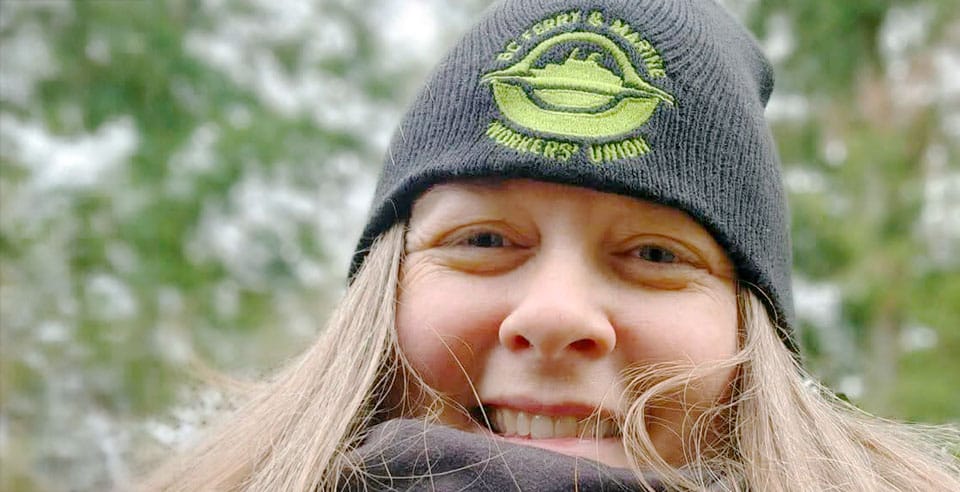More than a shortcut: finding connection on the Brentwood Bay–Mill Bay route

I love our history. I love our union. And I love supporting people.
That’s what keeps me coming back after nearly 13 years at BC Ferries. I work on the Brentwood Bay–Mill Bay route, what we call the most beautiful shortcut. It’s a unique run. I do ticketing and terminal work right onboard the vessel. We travel with the ship, start the loading on both sides, and work closely with the crew. It’s kind of like being a ticket agent and a tour guide at the same time.
I used to be a corporate travel agent, working in an office booking flights. A good friend of mine left to join BC Ferries and told me, “You’ve got to come here. The pay’s better. Everything’s better.” I applied for years before I got in, but it was worth the wait. I was ready for something different. This job gave me that. I worked in head office initially, but now I’m part of the oldest continuous ferry route in North America (since 1924).
What I found here is so much more than a job. The people on this route are incredible, our crew, our passengers, the community on both sides. We’ve had weddings between vessels, helped people in emergencies, supported families through grief. During the atmospheric river, we were the only connection to the Island for over 24 hours. The community stepped up with coffee, cookies, even bathroom access. That kind of support sticks with you.
We also get to see whales, sea lions, otters, eagles. It really is the most beautiful shortcut.
There are challenges, of course. Long hours. Heavy workloads. And people still don’t always understand the work we do. A lot of us are trained for emergencies. That’s actually our primary role. The ticketing or catering is secondary. We’re not just here to take your ticket, we’re here to keep you safe.
If I could change one thing, it would be to give workers more of a voice—and cut down on management overhead. There’s a real disconnect between management and staff, even between supervisors and managers. Sometimes it feels like we’re being asked to make sacrifices—cutting back basic things like peanut butter or tea service—while money is being spent in ways that don’t make sense on the ground. We need more communication, more respect, and more focus on the people doing the work.
I’m proud to be part of this union. I’m a shop steward, a trainer, and part of the local executive. For me, being part of Local 1 means having each other’s backs—on and off the vessel.
This job has my heart. It’s where I belong.
Marsha Spofford-Wilson, 1st vice president, Local 1